


If you’re dreaming of a place where luxury meets laid-back island charm,Nusa Dua in Indonesia is where you want to be. The moment you arrive,there’s this gentle hum of calm—waves softly lapping against pristine white beaches,the scent of frangipani flowers mingling with salty sea air,and the warm sun wrapping around you like a cozy blanket. It’s not just a beach town; it feels like a carefully crafted sanctuary where every detail invites you to slow down and savor the moment. Walking through Nusa Dua,you’ll notice the blend of modern elegance and rich Balinese culture. The streets are lined with beautifully manicured gardens and traditional stone carvings that tell stories of the island’s heritage. Local markets nearby buzz with vibrant colors and the enticing aroma of spices and fresh tropical fruits. Don’t miss trying the local dishes—imagine biting into a crispy,fragrant satay or sipping on a fresh coconut while watching the sunset paint the sky in shades of pink and gold. What really makes Nusa Dua stand out is its balance. It’s peaceful enough to feel like a retreat but lively enough to keep your curiosity alive. Whether you’re exploring coral reefs just offshore,wandering through art galleries,or simply lounging by an infinity pool with a cool drink in hand,there’s a sense of ease and joy that stays with you long after you leave. Trust me,Nusa Dua isn’t just a destination—it’s a feeling you’ll want to come back to.
The information on this page is currently being reviewed by Tripkliq and should be used as a guide only
Eng word: Hello
Eng pronunciation: HAH-loh
Local language: Halo
Eng word: Goodbye
Eng pronunciation: suh-LAH-maht TING-gahl
Local language: Selamat tinggal
Eng word: Thank you
Eng pronunciation: teh-REE-mah KAH-see
Local language: Terima kasih
Eng word: How much
Eng pronunciation: buh-RAH-pah
Local language: Berapa
Eng word: Toilet
Eng pronunciation: TOY-let
Local language: Toilet
Eng word: Help me
Eng pronunciation: TOH-long SAH-yah
Local language: Tolong saya
Eng word: Yes
Eng pronunciation: YAH
Local language: Ya
Eng word: No
Eng pronunciation: TEE-dahk
Local language: Tidak
Eng word: Excuse me
Eng pronunciation: puhr-MEE-see
Local language: Permisi
Nusa Dua, which translates to 'Two Islands' in Indonesian, gets its name from the two small raised headlands or islands found on the beach's southern coast.
In the 1970s, the Indonesian government decided to develop Nusa Dua as a luxurious resort area, aiming to attract international tourists seeking tranquility and upscale facilities.
Established in 1972, the Bali Tourism Development Corporation was responsible for the planning and development of Nusa Dua as a comprehensive tourist complex, setting a standard for high-end tourism in the region.
Geger Temple, a significant historical and cultural site in Nusa Dua, showcases the rich Balinese culture and heritage. Located on a cliff above Geger Beach, it offers splendid views and spiritual serenity.
Pantai Mengiat, often frequented by the local royalty in the past, is known for its pristine sands and clear waters. It's a popular spot for both locals and tourists seeking a quiet beach experience.
Recognized for its golden sands and crystal-clear waters, Nusa Dua Beach is among Bali's most beautiful beaches, drawing visitors worldwide for its natural beauty and water sports activities.
Opened in 1991, the Bali International Convention Center in Nusa Dua has hosted numerous high-profile international conferences and summits, positioning Nusa Dua as a key location for global dialogue.
Established in 2006, the Pasifika Museum exhibits an extensive collection of art from the Pacific Rim and Bali, showcasing the diverse cultures and artistic connections between them.
The Water Blow is a natural phenomenon where waves from the Indian Ocean crash into jagged limestone edges on the coastline, creating a dramatic explosion of water. It's a mesmerizing sight that highlights the raw beauty of Nusa Dua's shoreline.
In Nusa Dua, the most common Power Adaptor is Type C, Type F.


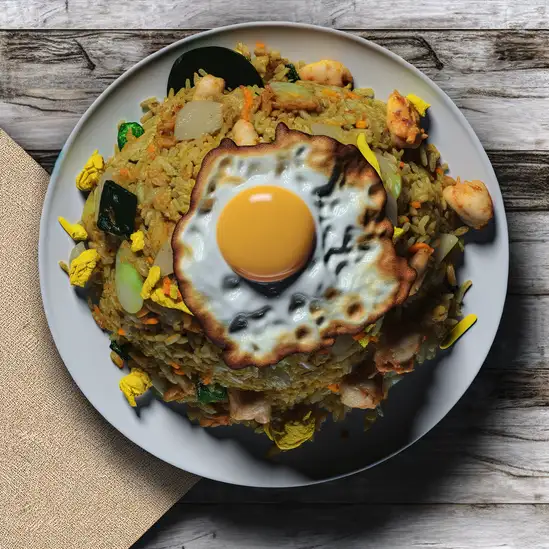
A flavorful fried rice dish often served with vegetables, chicken, shrimp, and topped with a fried egg.

A Balinese specialty made from minced meat mixed with grated coconut and spices, wrapped around bamboo sticks and grilled.
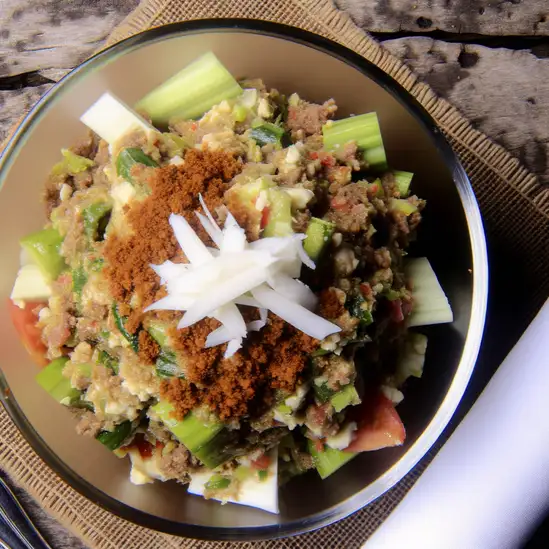
A traditional mix made from vegetables, coconut, and minced meat, often served as a side dish.

A salad of boiled vegetables, tofu, and hard-boiled eggs, served with a rich peanut sauce.
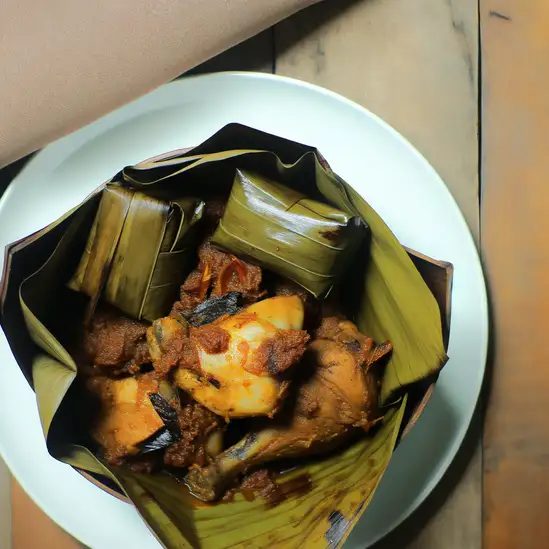
Spicy Balinese chicken dish that is marinated with a rich blend of spices and then slow-cooked to perfection.
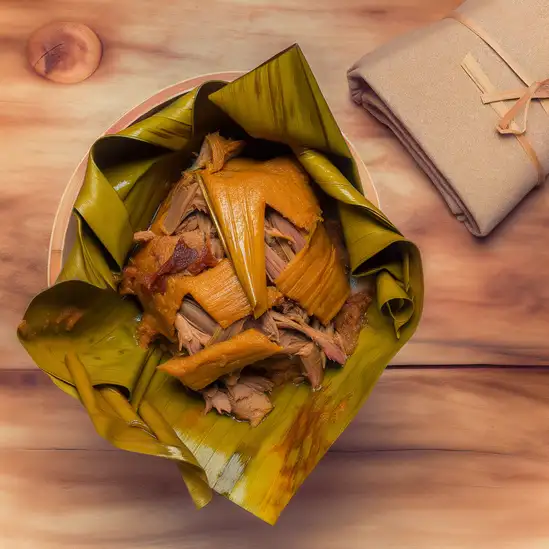
Slow-cooked duck marinated with a blend of spices, wrapped in banana leaves, and traditionally cooked in an underground oven.
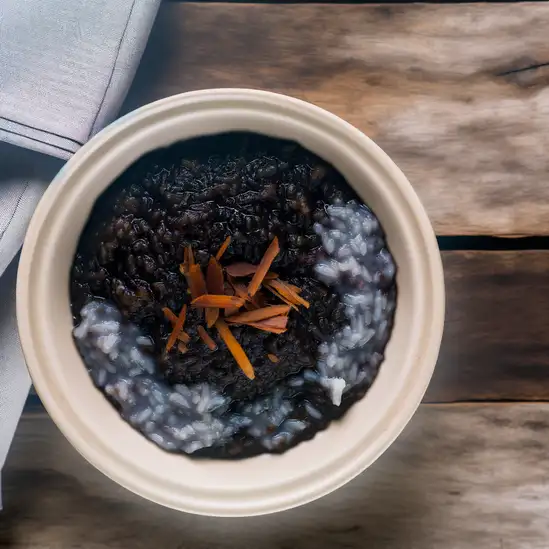
A traditional black rice pudding made with coconut milk, often enjoyed as a dessert.
If you ever find yourself craving a place where time slows down just enough to savor every moment,Ubud is that kind of sanctuary. Nestled in the lush heart of Bali,this town hums with a gentle rhythm—part spiritual retreat,part creative hub. Walking through its streets,you’ll catch the scent of frangipani and incense mingling with the earthy aroma of wet rice fields nearby. The air feels alive,filled with the soft chatter of locals,the distant clink of gamelan music,and the occasional call of a rooster greeting the dawn.
Ubud’s charm lies in its seamless blend of tradition and artistry. Temples with intricate stone carvings peek through vibrant greenery,while open-air markets burst with colorful textiles,hand-carved masks,and fresh tropical fruits. You can sip on a rich,earthy cup of Balinese coffee at a cozy café,watching artisans craft delicate silver jewelry or dancers rehearsing for an evening performance. It’s a place where culture isn’t just observed—it’s lived and breathed.
What really stays with you is the warmth of the people and the sense of connection to nature and spirit. Whether you’re wandering through the terraced rice paddies,joining a yoga class overlooking the jungle,or simply sitting by the Campuhan Ridge Trail at sunset,Ubud invites you to slow down,breathe deeply,and soak in a world that feels both ancient and vibrantly alive.
If you find yourself wandering through Kota Denpasar,you’ll immediately notice its lively heartbeat—a city that hums with everyday life yet carries a deep cultural rhythm beneath the surface. It’s not the polished tourist hub like southern Bali,but that’s exactly what makes it so captivating. The streets buzz with scooters weaving through markets where the scent of fresh spices mingles with the earthy aroma of tropical fruits. Vendors call out in warm,melodic tones,inviting you to taste something new or simply share a smile.
Denpasar feels like the authentic soul of Bali,where tradition and modern life dance side by side. You’ll see women in vibrant kebayas carrying offerings to temples,while nearby,young artists sketch murals that splash color onto old walls. The city’s pulse is both chaotic and comforting,with the clatter of street food stalls serving up fragrant nasi campur and the gentle chime of temple bells weaving through the air.
What’s truly special is how Denpasar invites you to slow down and soak in its layers—whether it’s the warmth of a local’s greeting,the taste of freshly brewed Balinese coffee,or the sight of intricate carvings on ancient temples tucked between bustling streets. It’s a place where you don’t just visit; you become part of the daily story,feeling the city’s spirit in every step you take.
Imagine stepping into a place where the sun kisses your skin,the ocean hums a steady rhythm,and the air carries the scent of salty waves mixed with sizzling street food. That’s Kuta for you—a lively beach town in Bali that pulses with energy but still feels effortlessly laid-back. From the moment you arrive,you’re wrapped in a warm,welcoming vibe that’s both vibrant and relaxed. The beach stretches wide,dotted with surfers catching waves and locals selling fresh coconut water,while the sunset paints the sky in fiery oranges and pinks.
Walking through Kuta’s streets,you’ll hear a blend of languages,laughter,and the occasional beat of gamelan music drifting from a nearby warung. The town’s character is a colorful mix of traditional Balinese culture and a buzzing international crowd,creating a unique atmosphere where ancient temples sit just blocks away from lively markets and buzzing nightlife. The aroma of satay grilling over open flames mingles with the tropical flowers blooming nearby,inviting you to slow down and savor every moment.
What makes Kuta truly special is how it balances excitement with ease. Whether you’re learning to surf,bargaining for handmade crafts,or simply lounging on the beach with a fresh mango smoothie in hand,there’s a genuine warmth in the air. It’s a place that invites you to dive into its rhythm,soak up its stories,and leave with a heart full of memories and a little more sun-kissed than when you arrived.
Imagine stepping into a place where the ocean breeze carries the scent of salt and frangipani,and the rhythm of traditional gamelan music hums softly in the background. That’s Lombok for you—a vibrant island that feels both alive and laid-back at the same time. Unlike its flashier neighbor Bali,Lombok has this raw,untouched charm that invites you to slow down and really soak in the moment. The beaches here aren’t just pretty; they’re vast stretches of powdery white sand meeting turquoise waves that seem to whisper stories of ancient fishermen and island life.
Walking through the local markets,you’ll hear the lively chatter of vendors selling fresh spices,tropical fruits,and handwoven textiles. The air is thick with the aroma of grilled satay and sweet coconut,tempting you to try every bite. The Sasak people,with their warm smiles and rich traditions,add a deep cultural layer to the island’s character. You might catch a glimpse of their intricate weaving or hear tales of their unique ceremonies,which feel like a bridge between past and present.
What really stays with you about Lombok is its balance—between adventure and tranquility,nature and culture. Whether you’re hiking up Mount Rinjani’s misty slopes,diving into vibrant coral reefs,or simply sipping a fresh coconut by a quiet beach,there’s a genuine sense of connection here. It’s a place that doesn’t just fill your camera roll but leaves a quiet imprint on your heart.
If you find yourself wandering through Kota Administrasi Jakarta Pusat,you’ll immediately notice the pulse of a city that’s both historic and buzzing with modern energy. It’s a place where colonial-era buildings stand shoulder to shoulder with sleek skyscrapers,creating a fascinating blend of old and new. Walking down the streets,you can almost hear the echoes of history mingling with the chatter of office workers and street vendors. The air carries a mix of aromas—from the rich,spicy scent of street food stalls grilling satay to the faint,comforting smell of freshly brewed kopi from tiny warungs tucked in corners.
What really makes Jakarta Pusat special is its vibrant character. It’s the heart of the city’s administrative and cultural life,so you’ll find a lively mix of people—government officials,artists,students,and families—all weaving their stories into the urban fabric. The bustling markets,like Pasar Baru,invite you to haggle over colorful textiles and local snacks,while nearby museums and galleries offer a quiet retreat into Indonesia’s rich heritage.
There’s a rhythm here that’s both fast-paced and inviting. Whether you’re sipping a sweet es cendol under the shade of a tree in Merdeka Square or catching the golden light reflecting off the National Monument at dusk,Jakarta Pusat feels alive in a way that’s deeply human and endlessly fascinating. It’s a city that invites you to slow down,look around,and soak in the layers of life unfolding all at once.
If you ever find yourself wandering through Yogyakarta,you’ll immediately notice a rhythm that feels both lively and laid-back,like the city is humming a gentle,inviting tune. It’s a place where ancient traditions and youthful energy collide in the most beautiful way. As you stroll down Malioboro Street,the air is thick with the scent of sizzling satay and sweet jasmine from roadside stalls,while the chatter of locals bargaining and the distant beat of gamelan music create a vibrant soundtrack. The city’s heart beats in its art and culture—every corner seems to hold a story,from the intricate batik workshops to the majestic temples of Borobudur and Prambanan just a short ride away.
Yogyakarta’s charm lies in its warmth and authenticity. The people here are incredibly welcoming,often eager to share their crafts,stories,or a cup of strong Javanese coffee. You can feel the city’s deep respect for its heritage,yet it’s also a hub for creative souls,with street art splashed across walls and indie cafes buzzing with young artists and thinkers. The sunsets here are something else—casting a golden glow over the terracotta rooftops and ancient palaces,inviting you to pause and soak it all in.
Whether you’re wandering through the Sultan’s Palace,tasting gudeg (a sweet jackfruit stew) at a local warung,or simply watching the world go by from a cozy café,Yogyakarta wraps you in a sense of belonging. It’s a city that doesn’t just ask you to visit but to stay a little longer,to explore deeper,and to fall in love with its soul.
Scammers may install skimming devices on ATMs to steal card information and PINs from unsuspecting tourists.
Vendors on the beach may charge exorbitant prices for food, drinks, or souvenirs, especially if prices are not clearly displayed.
Money changers may advertise attractive exchange rates but use sleight of hand to shortchange tourists during the transaction.
Some shops may sell counterfeit or low-quality items as authentic Balinese handicrafts at inflated prices.
Scammers may sell fake or overpriced tour packages that either don't exist or are of much lower quality than promised.
Tourists may be accused of damaging rented motorbikes, with scammers demanding excessive repair fees.
Some spas may charge tourists significantly higher prices than locals for the same services.
Some taxi drivers may refuse to use the meter and charge tourists inflated prices for short distances.
Tourists may be lured into attending high-pressure sales presentations for timeshares that are misleading or not worth the investment.
Unlicensed tour guides may offer their services but provide inaccurate or subpar information about attractions.
Indonesia has very strict laws regarding drugs. The possession, use, or trafficking of illegal drugs can result in severe penalties, including long prison sentences and even the death penalty. This applies to all types of drugs, including marijuana, which is illegal in Indonesia. Tourists should avoid any involvement with drugs to avoid severe legal consequences.
In Nusa Dua, Indonesia, smoking is generally allowed in designated smoking areas. However, smoking is prohibited in public places such as restaurants, hotels, and public transportation. There are also strict regulations against smoking in areas where children are present, such as schools and playgrounds. Tourists should look for designated smoking zones and adhere to local signage to avoid fines.
Vaping in Nusa Dua is subject to similar regulations as smoking. It is allowed in designated areas but prohibited in public places, including restaurants, hotels, and public transportation. Tourists should be cautious and look for signs indicating whether vaping is permitted. It is advisable to ask local authorities or establishments about their specific policies on vaping.
What are other people saying about Nusa Dua?
Recent Social posts about Nusa Dua
There is nothing to show you for now.